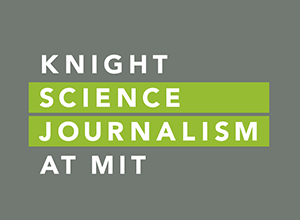Knight Science Journalism at MIT has selected twelve journalists working in six countries for its 31st class of Fellows. The journalists will study science, health, environment and technology at MIT during the academic year 2013-14.
Catalina Arevalo is an environment correspondent for the leading Spanish language news agency, EFE, based in Madrid, Spain.
Aleszu Bajak is a freelance journalist and founder of LatinAmericanScience.org, a weekly bilingual digest of science news out of Central and South America.
Julia Belluz is the senior editor at The Medical Post, a contributing writer at Maclean’s magazine, and creator of the blog Science-ish, based in Toronto, Canada.
Nick Clark is a Doha, Qatar-based anchor/correspondent with Al Jazeera English.
Rachel Ehrenberg is an interdisciplinary sciences/chemistry writer, with Science News, based in Washington, DC.
Mark Harris is a freelance writer for The Economist and The Sunday Times, among others, and a contributing editor at IEEE Spectrum. He is based in Seattle, WA.
Lynda Mapes of Seattle, WA is a staff writer at the Seattle Times, specializing in natural history, environmental topics and native cultures.
Jason Palmer is a science and technology reporter with BBC News, based in London.
Susan Phillips is an energy reporter and multi-media journalist with StateImpactPennsylvania, a joint project of NPR/WHYY/witf.
Jonathan Sahula is a freelance film and video editor and producer who frequently works for PBS’s NOVA. He is based in Boston, MA.
Yves Sciama is a freelance journalist from Grenoble, France. His work has appeared in Science et Vie, La Recherche, and Le Monde.
Tom Zeller is a senior reporter with the Huffington Post, primarily covering energy and the environment.
The new Knights were chosen by a committee composed of Philip J. Hilts, director, Knight Science Journalism at MIT; Charles Petit, science writer and KSJ Tracker; Susan Moran, freelance journalist; Joyce Murdoch, former Washington Post editor and reporter; and John Durant, director of the MIT Museum.


 "
" "
"